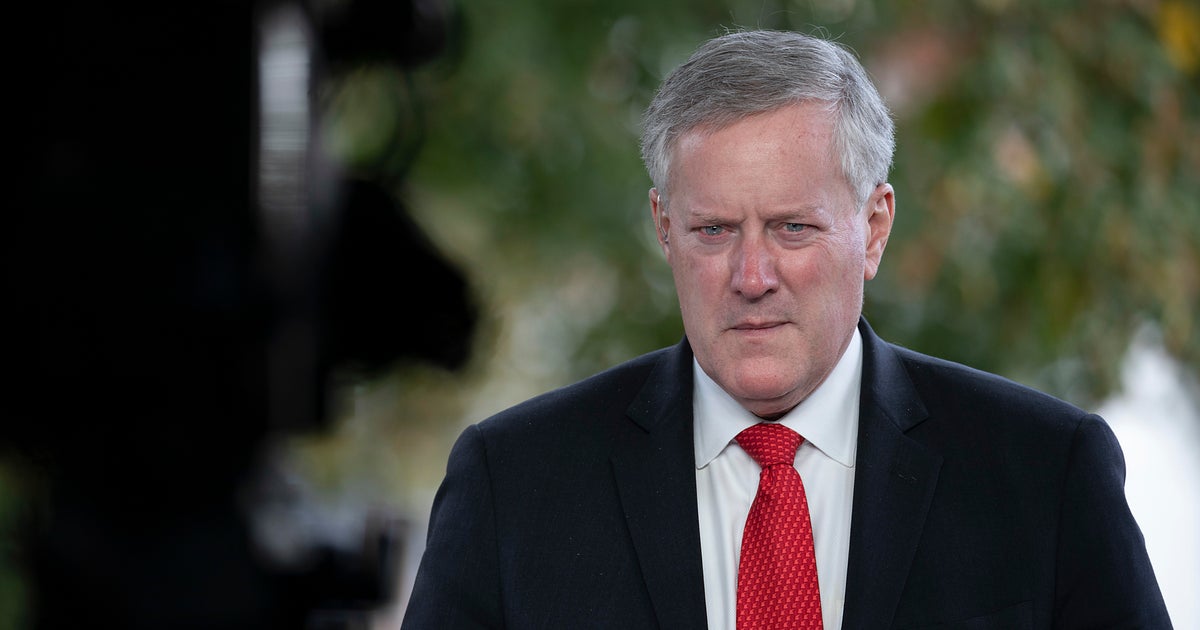
Mark Meadows' bid to move election interference charges to federal court met with skepticism by three-judge panel
CBSN
A recent 11th Circuit U.S. Court of Appeals ruling involving a Georgia man who claims to be an heir to the Moroccan kingdom may not bode well for Mark Meadows' attempt to move the election interference charges against him in Georgia from state court to federal court.
The case of the aspiring heir, decided in October, raised the question of whether a statute applying to federal officials also extends to former federal officials — in Meadows case, whether he can still invoke the Federal Officer Removal Statute when he is no longer a federal officer. The 234-year-old statute allows federal officials charged with state crimes to transfer them to federal court when they are related to their official duties.
A three-judge panel of federal appeals court judges heard oral arguments over the jurisdiction of Meadows' case on Friday. Meadows, who was White House chief of staff under former President Donald Trump, was charged in Fulton County, Georgia — along with Trump and 17 others — with conspiring to overturn Trump's 2020 election loss. Four of those charged have already agreed to cooperate, including two lawyers involved with the effort, Sidney Powell and Kenneth Chesebro, and a bail bondsman named Scott Hall, who entered guilty pleas. Trump, Meadows and others have denied wrongdoing.

Washington — The Supreme Court on Thursday cleared the way for the Trump administration to deport a group of migrants with criminal records held at a U.S. naval base in Djibouti, clarifying the scope of its earlier order that lifted restrictions on removals to countries that are not deportees' places of origin.





















 Run 3 Space | Play Space Running Game
Run 3 Space | Play Space Running Game Traffic Jam 3D | Online Racing Game
Traffic Jam 3D | Online Racing Game Duck Hunt | Play Old Classic Game
Duck Hunt | Play Old Classic Game










